Premium Only Content

Lil' Red Riding Hood Ju Ju Hand Go-Go-Girls Memphis Beat Wooly Bully Sam The Sham & The Pharaohs
Lil' Red Riding Hood Album: Lil' Red Riding Hood (1966)
Ju Ju Hand Album: Their Second Album (1965)
Go-Go-Girls Album: Wooly Bully (1965)
Memphis Beat
Wooly Bully Album: Wooly Bully (1965)
by Sam The Sham & The Pharaohs
Lil' Red Riding Hood is an updated version of the Little Red Riding Hood fairy tale, with lead singer Sam The Sham portraying the wolf. In this context, the singer is preying on the girl through lies and deception in an attempt to win her favor and take advantage of her. It's a scene played out in many social situations, as an aggressive guy might play lots of tricks to seduce an unsuspecting girl.
Written by Ronald Blackwell and produced by Stan Kesler, Lil' Red Riding Hood was the second big semi-novelty hit for the Texas band Sam the Sham & the Pharaohs. Their debut hit, "Wooly Bully," also made it to #2.
Sam, whose real name is Domingo Samudio, developed his act in the Dallas area where he played lots of local dances. With the Pharaohs, he became a comedy act, touring in a hearse and wearing turbans and Egyptian garb on stage. Some of their other songs include "The Hair On My Chinny Chin Chin," "I Couldn't Spell †&%$@?!" and "Pharoah A-Go Go."
The group's female backup singers were known as The Sham-Ettes, and when "Little Red Riding Hood" took off, the group's record label, MGM, had these ladies release an answer song called "Hey There Big Bad Wolf."
The Big Bopper released a different song called "Little Red Riding Hood" in 1958.
In 2011 the actress Amanda Seyfried recorded a new version of Lil' Red Riding Hood. Seyfried starred in the movie Little Red Riding Hood, which was a Twilight-style update on the fairy tale. Her version was produced by Matt Sorum, formerly of Guns N' Roses.
Their Second Album titled Their Second Album released in 1965 first track is titled Ju Ju Hand.
Wooly Bully is the debut studio album released in 1965 on MGM Records SE-4297 (stereo). It was released following the success of their hit "Wooly Bully", and contains a mixture of cover songs and original compositions. It is an early example of Tex-Mex music that was also being popularized by groups like Sir Douglas Quintet, Freddy Fender and ? and the Mysterians. Track 4 is Go-Go-Girls. Track 2 is The Memphis Beat.
"Wooly Bully" is based on a standard 12-bar blues progression, it was written by the band's frontman, Domingo "Sam" Samudio. It was released as a single on the small Memphis-based XL label (#906) in 1964 and was picked up in 1965 by MGM. The song was recorded at Sam C. Phillips Recording Studio at 639 Madison Avenue in Memphis, the successor to Phillips' original Sun Studio.
"Wooly Bully" was the band's first and biggest hit song. It became a worldwide success, selling three million copies and reaching No. 2 on the American Hot 100 chart on June 5–12, 1965. They were kept from reaching the top spot by The Beach Boys' "Help Me, Rhonda" and The Supremes' "Back in My Arms Again". "Wooly Bully" went to No. 31 on the Hot Rhythm & Blues Singles chart. The song also reached No. 2 on the Canadian CHUM Charts.
The song was the first American record to sell a million copies during the British Invasion and was influenced by the British rock sound which was mixed with traditional Mexican-American conjunto rhythms. It stayed in the Hot 100 for 18 weeks, the longest time for any song in 1965, and was nominated for a Grammy Award. It was named Billboard's number-one song of the year despite never reaching No. 1 on a weekly Hot 100, making this the first occurrence of such an event on the Hot 100. On August 5, 1965, the single was certified as gold by the RIAA. It was later included on the band's 1965 album Wooly Bully.
"Wooly Bully" is a reworking of the 1962 tune "Hully Gully Now" on the Dallas-based Gay Shel label by Big Bo & The Arrows (vocal by Little Smitty), which was based on Junior Parker's "Feelin' Good". The song was given the green light after Samudio rewrote the lyrics to replace "Hully Gully" with "Wooly Bully" and a few additional lyrical changes. Samudio retained the "watch it, watch it now" refrain from the original version.
The lyrics of "Wooly Bully" were hard to understand, in consequence, some radio stations banned the song. The lyrics describe a conversation between "Mattie" and "Hattie" concerning the "Wooly Bully" (a creature which Mattie describes as "a thing she saw [that] had two big horns and a wooly jaw" – that is, an American bison) and the desirability of developing dancing skills, although no attempt is made to synthesize these divergent topics. The warning "Let's not be L-7" means "Let's not be square", from the shape formed by the fingers making an L on one hand and a 7 on the other. Sam the Sham underscores the Tex-Mex nature of the song by counting out the rhythm in Spanish and English ("Uno! Dos! One, two, tres, cuatro!"), and the characteristic simple organ riffing, with a tenor saxophone solo in the middle. According to Samudio, "The count down part of the song was also not planned. I was just goofing around and counted off in Tex-Mex. It just blew everybody away, and actually, I wanted it taken off the record. We did three takes, all of them different, and they took the first take and released it."
Domingo "Sam" Samudio – Farfisa organ, vocals
Ray Stinnett – guitar
Butch Gibson – saxophone
David A. Martin – bass guitar (died 1987)
Jerry Patterson – drums, percussion
Technical
Stan Kesler – producer
Val Valentin – engineer
-
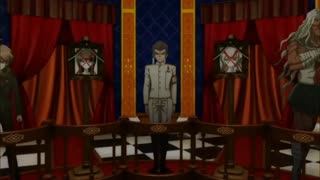 14:07
14:07
Psychological operations
18 days agoAutoboto Hip Hop Saved My Life Words I Never Said Lupe Fiasco
105 -
 24:30
24:30
DeVory Darkins
15 hours agoMarjorie Taylor Greene RESIGNS as Minnesota dealt MAJOR BLOW after fraud scheme exposed
70.8K118 -
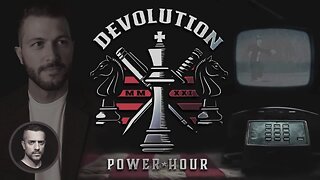 2:19:48
2:19:48
Badlands Media
1 day agoDevolution Power Hour Ep. 409: Panic in the Narrative — Epstein, Israel, and the Manufactured Meltdowns
161K56 -
 1:52:38
1:52:38
Man in America
12 hours agoCommunists VS Zionists & the Collapse of the American Empire w/ Michael Yon
69.9K43 -
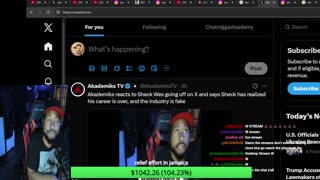 4:09:34
4:09:34
Akademiks
7 hours agoSheck Wes exposes Fake Industry. Future Not supportin his mans? D4VD had help w disposing his ex?
42.2K3 -
 6:43:43
6:43:43
SpartakusLIVE
11 hours agoTeam BUNGULATORS || From HUGE WZ DUBS to TOXIC ARC BETRAYALS
115K3 -
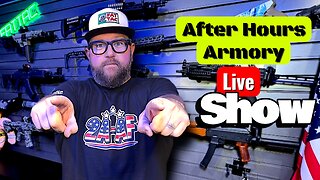 2:44:56
2:44:56
BlackDiamondGunsandGear
7 hours agoAre You that guy? / Carrying a Pocket Pistol /After Hours Armory
27.1K1 -
 5:41:59
5:41:59
Camhigby
7 hours agoLIVE - Riot Watch Portland, DC, NC
30.1K21 -
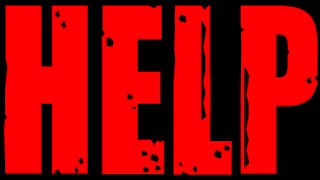 2:54:58
2:54:58
CAMELOT331
10 hours agoYouTube Just Told Me I OWE THOUSANDS $ TO THEM... update
35.3K9 -
 2:00:53
2:00:53
Tundra Tactical
17 hours ago $7.19 earned🛑LIVE AT 9PM CST!! Your Government Hates Your Guns : DOJ Holds Firm On National FIREARMS ACT
29.2K